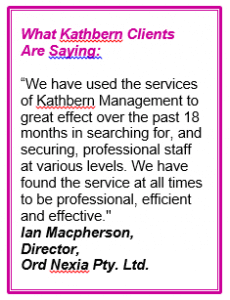(Reading Time: 7 minutes)
A modest proposal for finding work-life balance.
You deserve a break today.
It’s an old slogan for a popular candy bar that still rings true.
Finding work-life balance and making time for self-care are buzzwords these days; even the Ontario government is mandating the right to disconnect for employers with 25 or more employees.
Under a new law that goes in effect on January 1, 2023, employers will have to distribute a written policy to employees on disconnecting from work when not on the job. That means not doing any work when not at work, including work-related communications, including emails, telephone calls, video calls, or sending or reviewing other messages.
But what does this mean in practice? Because as we all know, disconnecting, especially when you’re in charge, can lead to a whole set of other problems for people.
I struggle with it as much as anyone else.
I’ll go away for the weekend, and I’ll – of course – have my phone with me. I’ll think of things, or someone will email me. Even so, I try not to email people on the weekend. I’m making more and more use of the delay function in my email program so that if I’m going to do an email, I will set the message so it doesn’t go out until Monday or Tuesday. On Monday morning, I might have 10 messages all lined up to go, but that way people aren’t disturbed on the weekend.
I find that people seem less reluctant to send LinkedIn messages on the weekend, but that might be because it’s less formal than email so it’s more acceptable.
 Managing vacation time
Managing vacation time
But how do you take a vacation? The only way to unplug completely is to turn all electronics off, something that could be quite difficult to force you or your employees to actually do. In many cases, it’s hard enough to get people to take a vacation, let alone unplug for any length of time.
The problem is that many of us think that taking a vacation – and unplugging – will be more stressful than simply staying on the job. So many worries can come along with taking a break in our competitive world, including fears about:
mounting work – what’s piled up while we’re gone. All the day-to-day can really pile up.
penalties – will there be formal or informal penalties for not keeping up.
peer pressure – will we lose pace in the competitive race with our peers?
client expectations – will taking a break result in some failing to our clients?
It’s no surprise that many of us conclude that not going on vacation is the best way to keep up with the rat race.
Instead, I advocate for a different choice, one that allows you (and your employees) to take a vacation without taking on the stress of vacation. One that means staying connected, but doing so on your own terms. One that seems to be (re)gaining popularity.
The hybrid model
This really isn’t new, but it seems to be the more popular solution. You still go away or take vacation, but you’ll continue to keep tabs on your job. In my case, I’ll check my email and do my job for about two hours in the morning, early, before the family gets up, so it doesn’t interfere with our plans. I’ll do what I need to do to keep afloat.
We’re even seeing public examples of this; think of Dr. Bogoch, an infectious disease expert, giving updates on television from cottage country. Or, in my own case, my financial advisor called me on his vacation about a matter that hadn’t been cleared up before he began his holiday. These are two people who are clearly following a hybrid model.
It’s a model that for many people has ancillary benefits. They can come and go as they want, as they’re not locked into working from one particular location. There’s more flexibility around the number of hours worked in a day, and the focus is on doing the work on time not on where or how it gets done. It’s pretty flexible; in fact, it’s what many of us were doing during the pandemic.
That said, determining how and when to unplug is one thing if you’re a CEO or entrepreneur; it’s entirely another if you’re trying to set a company-wide policy or hire new employees. There are a lot of variables at play. Here are some things to keep in mind.
Set an example, or clear expectations
In some companies, the CEO and other members of the senior leadership team purposely unplug as an example to their employees. That can take a lot of courage, but it’s also easier to do in a larger organization, where you have significant lieutenants who can handle things while you’re away. Even in those cases, there’s probably a way to contact someone in a dire emergency.
But smaller companies aren’t necessarily going to have that kind of depth, especially in cases where everyone is doing a broad job. A larger company, for example, may have four or five customer service reps, and can rotate vacations among them.
A smaller company, though, may only have one customer service rep, which would create a vacuum if that one person were to completely unplug for any length of time. In that instance, it just makes more sense to do some sort of hybrid where you do a bunch of stuff in advance, and then check in every day to make sure nothing falls through the cracks.
Ontario’s unplugging legislation is good in that it will cover off flagrant cases where employers are abusive. At some companies, it’s a trade off. Employers pay significantly more but require more.
Job offers
Every job offer we make includes the money, start date, whether there is a benefit plan, and the number of vacation weeks. But setting that number is a bit ambiguous, when you think about whether a person with that role can actually take a vacation in practice. The other part to remember is that a contract could contemplate a lot of vacation weeks, but there’s still a job that needs to be done. There has to be balance.
It should be pretty apparent to anyone walking into an organization what the vacation culture is likely to be. If it’s a small organization, where each person’s duties are so distinct from everyone else’s, it should be obvious that completely unplugging is unlikely to be on the table.
 Use it or lose it
Use it or lose it
Many companies have moved away from rolling forward unpaid vacation year on year because it accumulated a huge liability on the balance sheet. Employees need to take their vacation or it’s gone at the end of the year. If someone resigns, a company might owe them that year’s vacation, but it wouldn’t be a lot, maybe a week or something.
Make sure that you know how many weeks of vacation your direct reports each think they have, especially if you’re starting a new job, even at big company. You want to avoid getting surprised by an unexpected vacation request, or with a group of unhappy employees who all think they have large amounts of pocketed vacation that they have yet to take.
The new world of work
One way to avoid the liability altogether is to set up your company with entirely contract workers. There are so many people doing freelance that you can pretty much put together a company on freelancers alone if you’re a good business developer. Of course, to avoid being categorized as “employees” independent contractors have to have multiple revenue sources, control their own work, provide their own equipment etc., so this is isn’t the answer for every situation.
You would still want some sort of structure around who’s managing what when someone goes on vacation, but again, that brings us back to the hybrid model.
The hybrid model isn’t perfect. But it addresses some of the fears of totally unplugging, is more manageable for smaller businesses, and small business owners. And that’s good business sense.
Larry Smith is the founder and president of Kathbern Management, an executive search firm based in Toronto. Kathbern helps companies find the executives and senior managers who not only have the experience and credentials to fulfill their responsibilities, but also have the emotional and “fit” requirements that will enable them to be successful in a particular environment. Kathbern simplifies the process and, through deep research, brings more and better candidates forward than would ever be possible through a do-it-yourself passive advertising campaign.
Learn more at www.kathbern.com, or contact us today for a free consultation about your key person search. Follow us on LinkedIn, Facebook, and Twitter.

